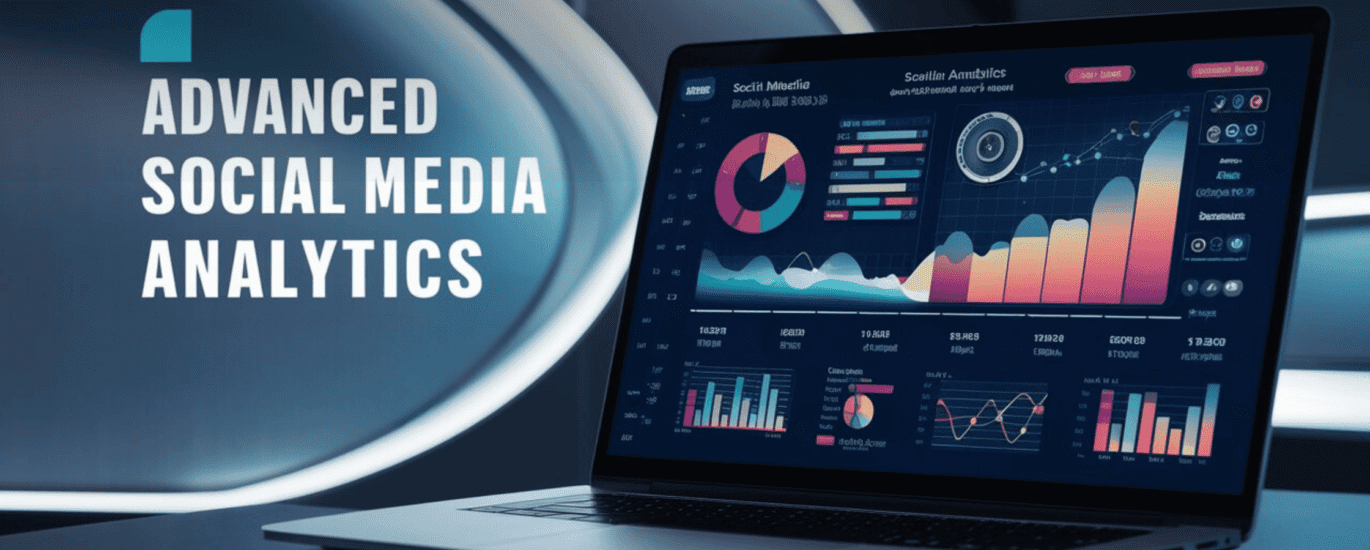In today’s digital landscape, social media has become an indispensable tool for businesses. However, merely having a presence on these platforms is not enough. The key to unlocking the true potential of social media lies in understanding the data generated by these platforms and leveraging it to inform your strategy. This is where social media analytics and reporting come into play. By diving deep into the metrics and performance indicators, businesses can gain invaluable insights that drive growth and engagement.

Understanding Social Media Analytics
Social media analytics involves the collection and analysis of data from social media platforms. This data helps businesses understand how their content is performing, who their audience is, and how they can improve their strategy. The process includes tracking metrics such as likes, shares, comments, and follower growth. More advanced analytics may also involve sentiment analysis, which gauges public sentiment towards a brand or product, and competitive analysis, which benchmarks performance against industry peers.
The Importance of Reporting
While analytics provides the raw data, reporting is about turning this data into actionable insights. Regular reporting helps businesses track their progress over time, identify trends, and make informed decisions. A good report highlights key performance indicators (KPIs), showcases successes, and points out areas for improvement. It is a crucial tool for communicating the impact of social media efforts to stakeholders and for refining strategies to achieve better results.
Components of an Effective Social Media Report
An effective social media report should include several key components:
- Overview: A summary of the report’s key findings and insights.
- Performance Metrics: Detailed data on engagement, reach, impressions, and conversions.
- Audience Insights: Information about the demographics, interests, and behaviors of your followers.
- Content Analysis: Performance of individual posts, including which types of content resonate most with your audience.
- Competitor Analysis: A comparison of your performance with that of your competitors.
- Recommendations: Actionable insights and strategies to improve future performance.
Tools for Social Media Analytics and Reporting
There are numerous tools available to assist with social media analytics and reporting. Some popular options include:
- Google Analytics: While primarily known for website analytics, Google Analytics also provides insights into social media traffic.
- Hootsuite: A comprehensive social media management tool that includes robust analytics and reporting features.
- Sprout Social: Offers detailed analytics and customizable reports, as well as tools for social media management.
- Buffer: Provides an easy-to-use interface for scheduling posts and analyzing their performance.
- Facebook Insights: Built-in analytics for Facebook pages, offering detailed metrics on page performance.
Benefits of Social Media Analytics and Reporting
Utilizing social media analytics and reporting offers several benefits:
- Informed Decision-Making: Data-driven insights allow for more informed decisions, leading to more effective social media strategies.
- Improved Engagement: Understanding what content resonates with your audience helps in creating more engaging posts.
- Enhanced ROI: By tracking metrics and adjusting strategies accordingly, businesses can maximize their return on investment.
- Competitive Advantage: Keeping an eye on competitors’ performance helps in staying ahead in the market.
- Better Resource Allocation: Identifying which platforms and content types perform best helps in allocating resources more efficiently.
Implementing Social Media Analytics in Your Business
To effectively implement social media analytics in your business, follow these steps:
- Set Clear Goals: Define what you want to achieve with your social media efforts, such as increasing brand awareness or driving website traffic.
- Choose the Right Tools: Select tools that meet your needs and budget.
- Track the Right Metrics: Focus on the metrics that align with your goals.
- Regular Reporting: Establish a routine for creating and reviewing reports.
- Analyze and Adjust: Use the insights gained from your reports to tweak your strategy for better results.
Challenges in Social Media Analytics and Reporting
While the benefits are clear, there are also challenges to be aware of:
- Data Overload: The sheer volume of data can be overwhelming, making it difficult to focus on what matters most.
- Keeping Up with Changes: Social media platforms frequently update their algorithms and features, which can impact your analytics.
- Accuracy of Data: Ensuring the accuracy and reliability of your data is crucial for making informed decisions.
- Integration with Other Data: Combining social media data with other business data for a holistic view can be challenging.
Future Trends in Social Media Analytics
As technology evolves, so too will the field of social media analytics. Some trends to watch out for include:
- Artificial Intelligence: AI-powered tools will become more prevalent, offering deeper insights and automating more complex analyses.
- Real-Time Analytics: The demand for real-time data will increase, enabling businesses to react quickly to trends and events.
- Predictive Analytics: Predictive analytics will help businesses anticipate future trends and behaviors, allowing for more proactive strategies.
- Integration with Other Channels: Social media analytics will increasingly be integrated with data from other marketing channels, providing a more comprehensive view of performance.
Conclusion
In the dynamic world of social media, staying ahead requires more than just creativity and engagement. It demands a strategic approach informed by data. By leveraging social media analytics and reporting, businesses can gain a deeper understanding of their audience, refine their strategies, and drive better results. At Get Our SEO, we specialize in helping businesses unlock the full potential of their social media efforts. Let us help you navigate the complexities of social media analytics and create a winning strategy that propels your brand to new heights.




